Article by Vivian Maneval ‘27
By the time most students are winding down for the night, members of the Food Recovery Network are just getting started, collecting trays of untouched meals from the dining hall to redistribute to local communities. On Sunday mornings, Sustainable Ocean Alliance members gather bright and early to lead cleanup crews, teaching their peers how to sort waste before heading out to clear the litter left behind after Saturday’s football game.
Across the University of Maryland, student organizations like these are proving that sustainability isn’t just a goal, it’s a way of life. At the individual level, Terps weave sustainability into their everyday actions, from carrying a reusable water bottle to choosing Shuttle-UM or micromobility over cars. Collectively, their impact grows exponentially. From paying respect to native habitats to enabling productive professional development for all, student groups are at the heart of campus change. These organizations don’t just raise awareness; they get their hands dirty, encourage collaboration, and bring sustainability to life on campus in tangible ways.
As we celebrate Campus Sustainability Month this October, we’re highlighting five student groups whose passion and commitment are shaping a greener, more resilient community for all Terps. Each group is open and accessible to all students: no experience required, just a willingness to get involved and make a difference.
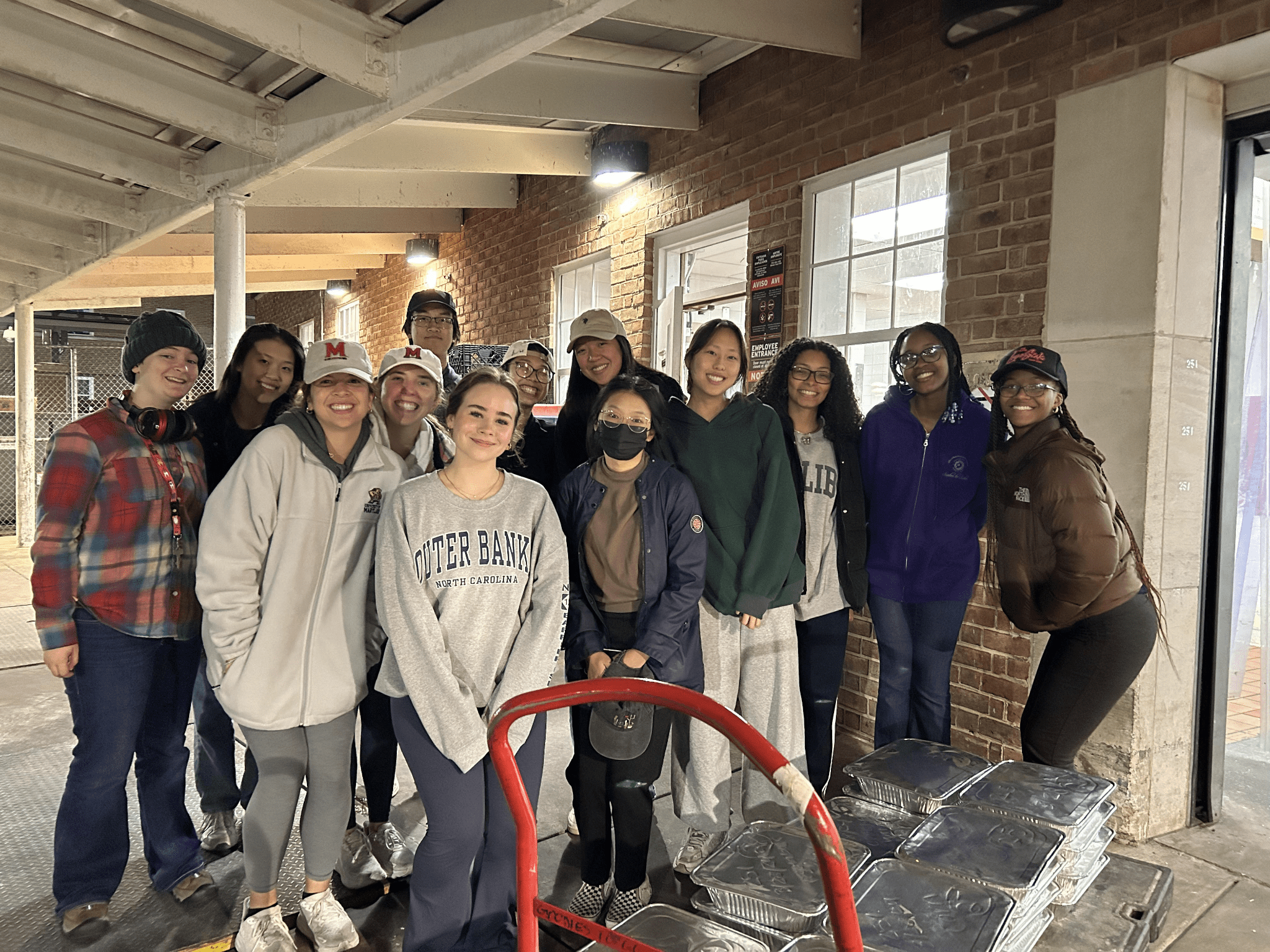
(1) Food Recovery Network
Passionate about fighting food waste or addressing hunger in your community? The Food Recovery Network (FRN) is a volunteer organization that recovers surplus food from dining halls, athletic events, and catering services before it goes to waste. Each recovered food tray is redirected to the UMD Campus Pantry, the Christian Life Center, and local partners, including soup kitchens and food pantries across Prince George’s County, ensuring that excess food is used to provide nutrition to those who need it.
Rooted in the belief that access to food is a basic human right, FRN has grown from its beginnings at UMD into a national movement, with chapters at colleges across the country. Here on campus, volunteers divert over 10,000 pounds of food from the landfill every semester, a powerful reminder of what collective effort can achieve.
Getting involved is simple: Join FRN’s Discord to receive daily instructions and dining hall assignments!
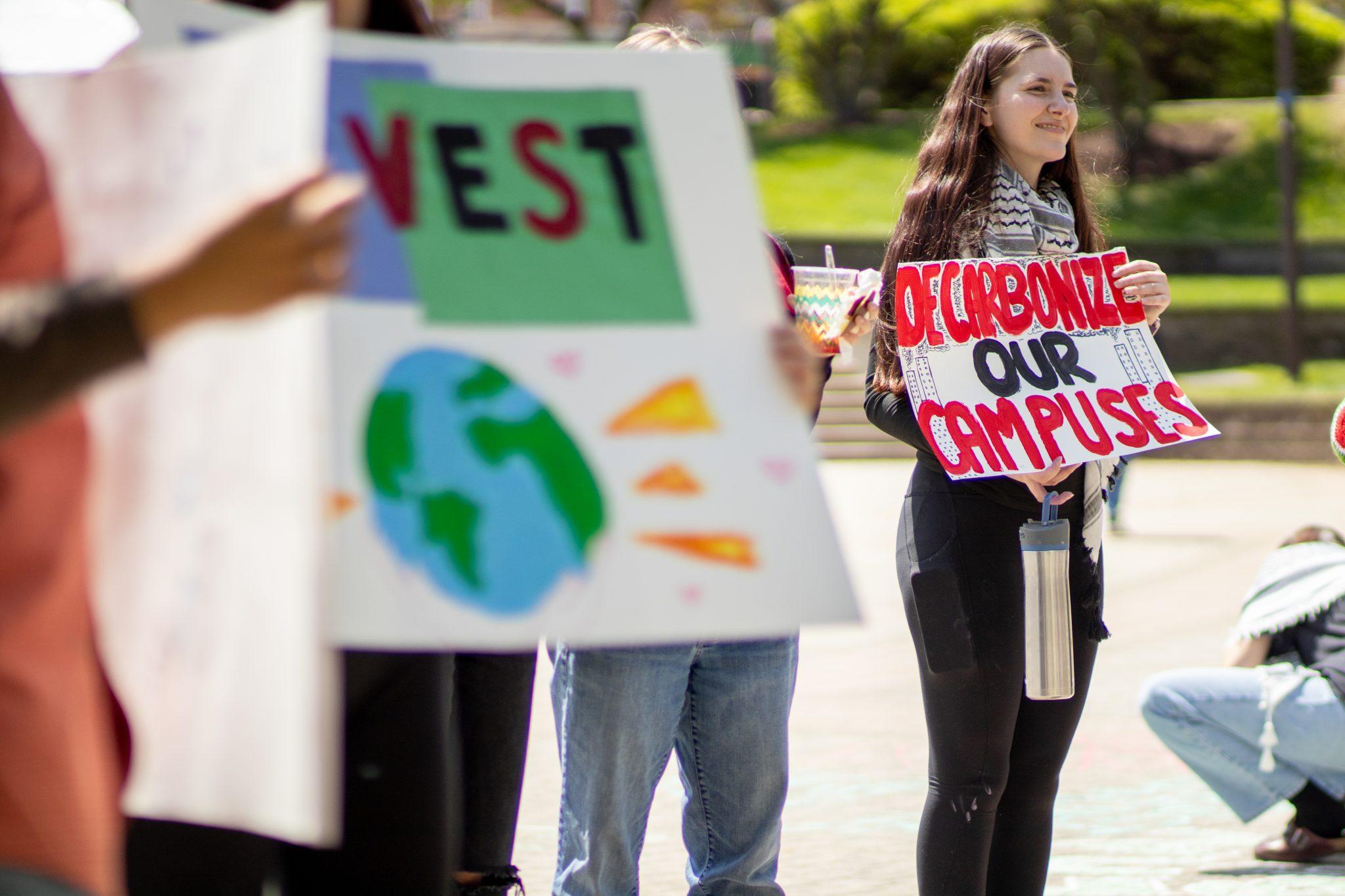
(2) 17 for Peace and Justice
Dedicated to confronting the social, economic, and environmental inequities that shape our world, 17 for Peace and Justice (17FPJ) is one of UMD’s leading voices for environmental advocacy. Guided by the 17 Principles of Environmental Justice, established at the historic First National People of Color Environmental Leadership Summit in 1991, the organization empowers and engages students to take meaningful steps against injustice in all its forms.
Over the past year, 17PFJ has hosted weekly meetings that explore topics ranging from natural resource extractivism in Latin America to the hidden costs of fast fashion, sparking conversations and awareness among members that spread across campus. Through its four subcommittees, 17PFJ transforms learning into initiatives, including cleaning up the Anacostia River, building a pollinator garden on campus, organizing university-wide protests, and managing an environmental justice-focused book club.
Students interested in joining this welcoming, action-driven community can reach out to 17forpeaceandjustice@gmail.com or join the club’s GroupMe to get involved.
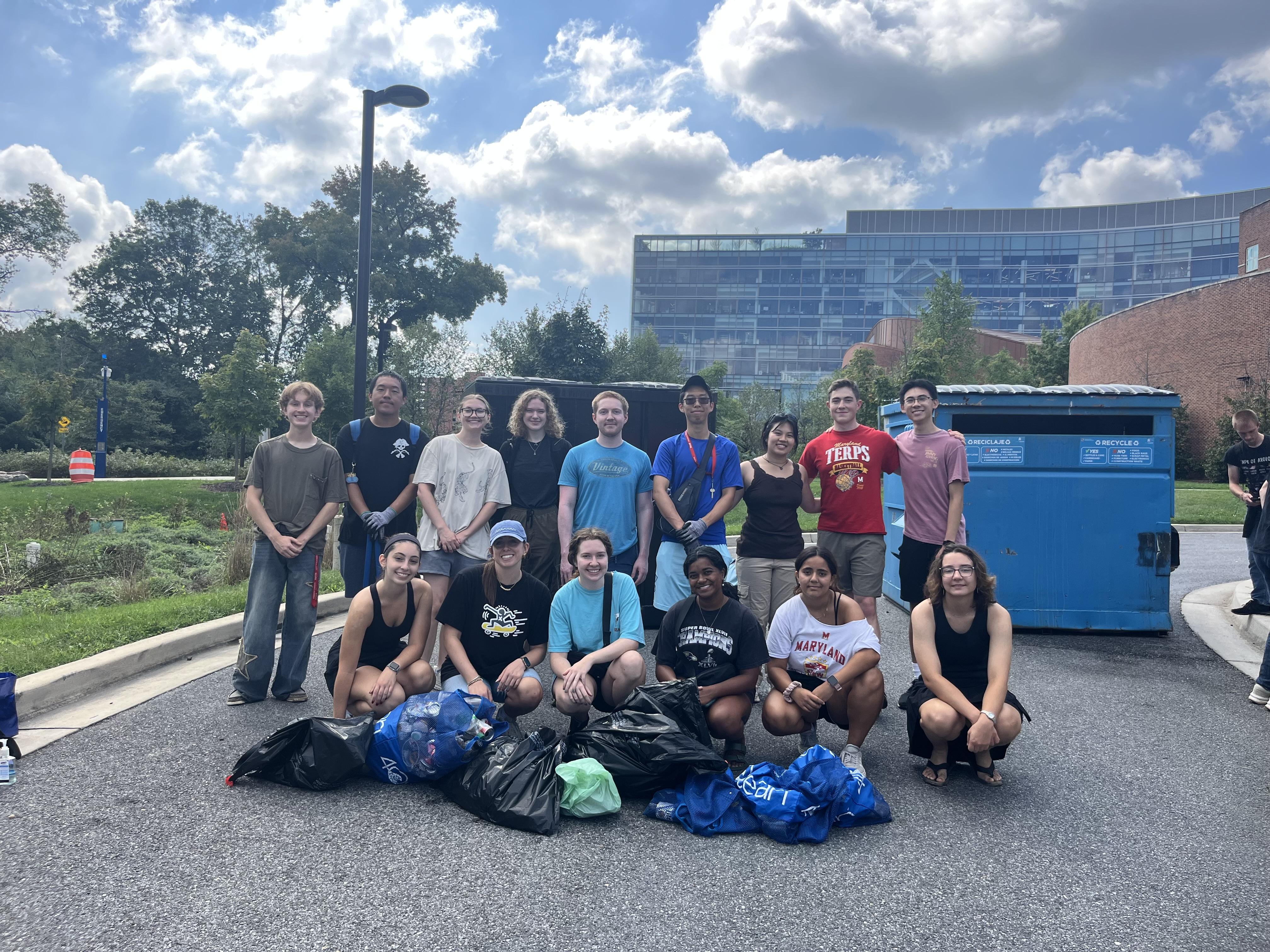
(3) Sustainable Ocean Alliance
The UMD chapter of the Sustainable Ocean Alliance (SOA) is an energetic community of students united by a shared mission: to protect the world’s oceans and the life they sustain. Through hands-on projects, policy advocacy, and peer education, SOA raises awareness for critical marine issues while inspiring students to take action toward more sustainable ecosystems.
One of the club’s signature initiatives is its Sunday morning campus cleanups, where SOA members collaborate with other student organizations each week to collect litter from campus grounds and nearby waterways. In the past spring semester alone, SOA and its partners removed 617 pounds of waste, averaging around 47 pounds collected per hour-long cleanup.
SOA welcomes both undergraduate and graduate students year-round. To get involved, join the club’s Discord for weekly meeting details or simply show up at the Brendan Iribe Center Courtyard on Sundays at 11 am to lend a hand in protecting our planet.
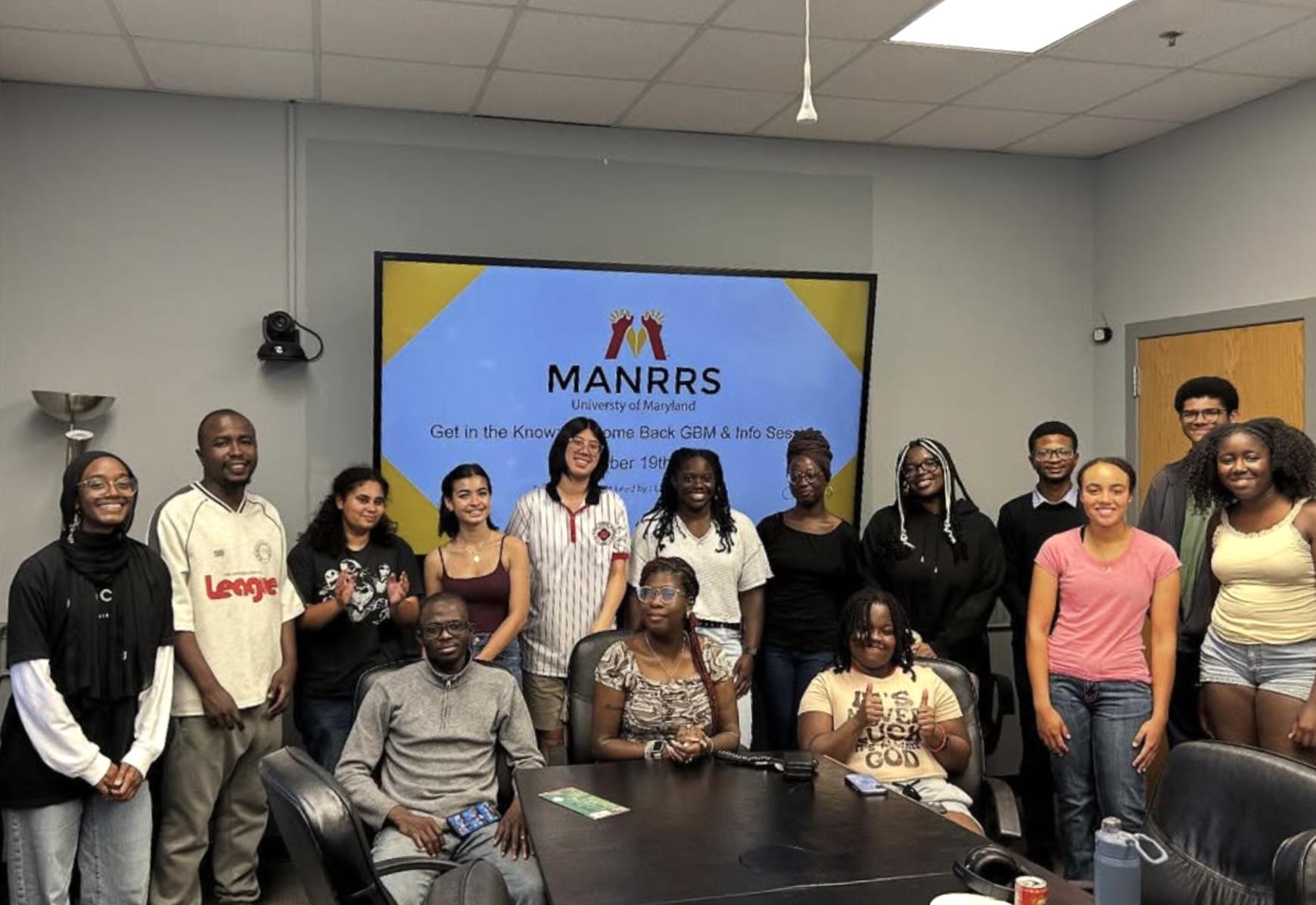
(4) Minorities in Agriculture, Natural Resources, and Related Sciences
The UMD chapter of Minorities in Agriculture, Natural Resources, and Related Sciences (MANNRS) works to expand academic and professional opportunities for underrepresented groups in agriculture and environmental fields. MANNRS empowers members through mentorship, networking, and hands-on professional development. Students gain access to national conferences, career workshops, and a supportive community that supports their growth.
On campus, MANRRS blends its professional mission with sustainability, organizing tree plantings, hosting informative weekly meetings, and discussing how members’ professional efforts can support sustainability. At its core, the organization aims to ensure the next generation of leaders is inclusive and forward-thinking.
Anyone, regardless of major or background, is welcome to join. Students can attend a meeting (details are shared on Instagram @umdmanrrs) and connect through the group’s GroupMe to get started.
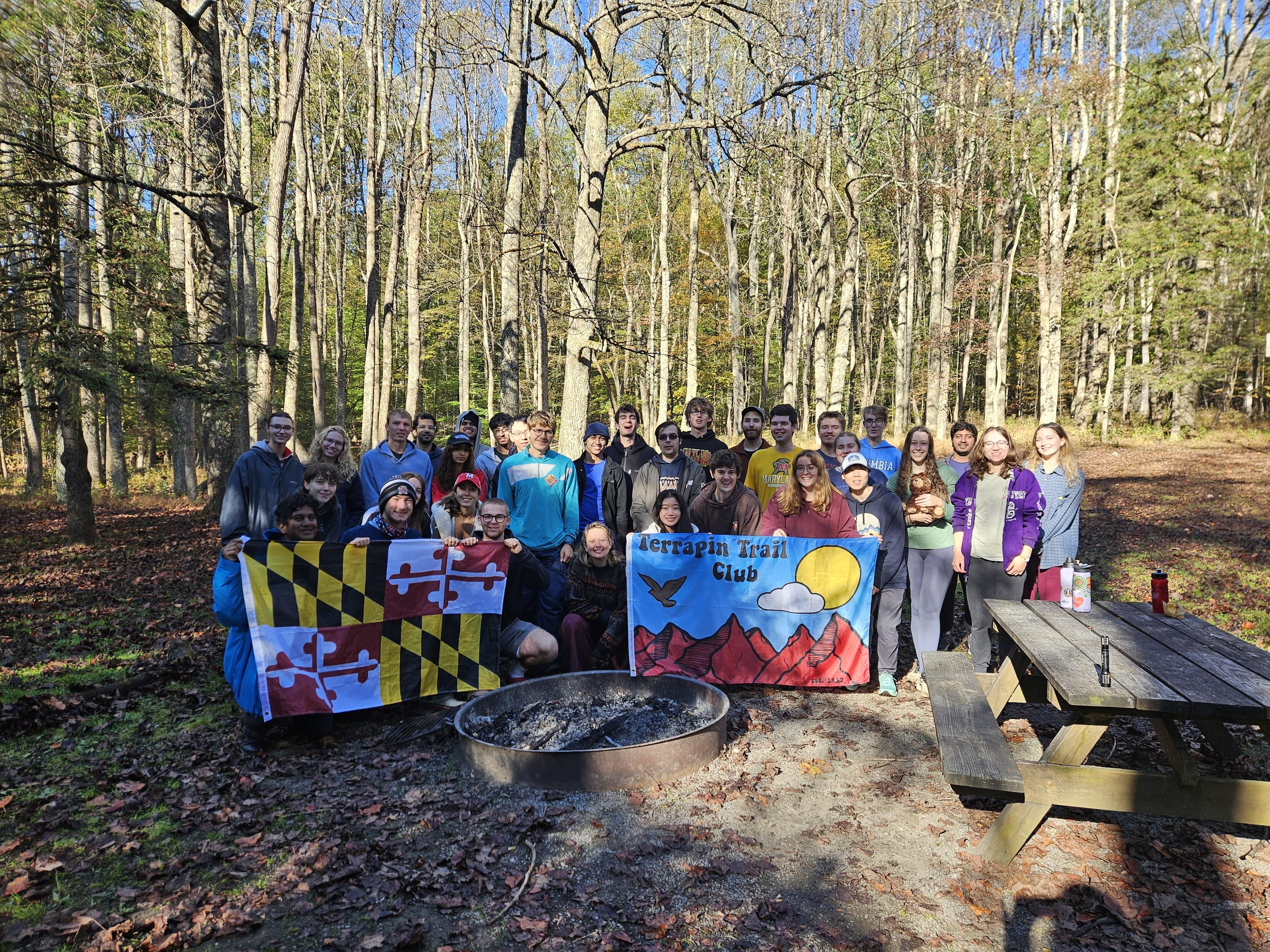
(5) Terrapin Trail Club
If you’re feeling trapped on campus and need some fresh air, the Terrapin Trail Club (TTC) is your ticket outdoors! From hiking and caving to kayaking and backpacking, TTC leads students on outdoor adventure trips while promoting sustainable recreation and respect for nature. Knowing that many of their participants have no prior experience with these activities, the club consistently instructs members on safe and responsible recreation.
Sustainability is woven into every aspect of their outings. The club regularly hosts eco-focused trips both on and off campus, from participating in Good Neighbor Day to organizing community trash cleanups. TTC board members also reinforce the club’s guiding principle of “leave no trace” throughout each trip, emphasizing to all participants the value of protecting natural habitats and preserving the beauty of every place they visit.
Ready to hit the trail? Visit TTC’s Instagram bio for important links, and join their Discord to stay updated and sign up for upcoming trips.
Sustainability at UMD thrives because of the dedication of students, who turn their passion into action. Whether it’s recovering food, preserving landscapes, protecting oceans, or ensuring equal access for all, these organizations show that commitment and community can create lasting change.
There are countless ways to get involved on campus: participate in service, attend a meeting, or simply support your peers’ efforts. If you don’t see a group that sparks your interest, consider starting your own!
The five organizations highlighted in this article are just a fraction of the sustainability efforts of UMD students. Check out a longer list of additional sustainability-related organizations below, or view our Campus Sustainability Month Instagram Highlight for more inspiration!
